Your body’s natural response to stress can lead to painful skin irritation

Stress can cover your face in a mask of tension. But did you know that worries during tough times also can leave their mark on your elbows, ankles, shoulders and any other area of your body?
Advertisement
Cleveland Clinic is a non-profit academic medical center. Advertising on our site helps support our mission. We do not endorse non-Cleveland Clinic products or services. Policy
Stress-induced eczema can leave your skin dry, irritated and oh-so-itchy. It’s a visible display of your body’s internal turmoil — and once that rash develops, it can grow right along with your concerns.
So, how exactly does stress cause this annoying form of dermatitis to develop? And more importantly, can it be stopped? Let’s get the answers from dermatologist Gowri Kabbur, MD, and family medicine specialist Saadia Hussain, MD.
Think about how your body reacts during stressful times. You can feel it, right? Your heart rate jumps, your breathing gets deeper and every nerve ending seems to crackle like a live electrical wire.
This natural “fight-or-flight” response is fueled by a surge in hormones, including cortisol (aka, the stress hormone). This flood of cortisol reaches and affects your skin, as well as virtually every organ in your body.
Stress also causes your body to release histamine, a chemical in your immune system commonly connected to allergic reactions. The itchiness histamine brings can help kickstart eczema.
In addition, amped-up production of immunoglobulin E (IgE) in response to stress can add to your itchiness. (This is the same antibody released when you have an allergic reaction.)
Advertisement
Bottom line? “Stress triggers a cascade of reactions that can filter down to our skin,” says Dr. Kabbur. “So, when we’re stressed internally, it can manifest on our skin externally as eczema. It’s a visible sign of your body’s stress response.”
Skin serves as a line of defense between your inner body and the bacteria and germs in the outside world. This epidermal barrier features a complex microbiome with oils and moisture that keep your skin healthy.
Stress can upend that microbiome and its delicate balance. Remember the cortisol that races through your stress-filled system? That hormone alters the production of skin oils in a way that can leave your skin angry and irritated.
Symptoms of eczema include:
“The more stressed you are, you tend to get worse eczema breakouts,” says Dr. Hussain. “There’s a connection there.”
If you regularly deal with eczema, stress may more easily launch a new round of skin inflammation. But high stress can bring on eczema in those who’ve never experienced the condition.
“If there’s a big stressor, it can lead to an eczema response in anybody,” notes Dr. Kabbur.
There’s a definite link between eczema and mental and emotional health conditions. In fact, the National Eczema Association reports that more than 30% of people with eczema have also been diagnosed with anxiety or depression.
“You’re dealing with a chronic skin condition that can be very visible, very itchy and can have an effect on so many parts of your life,” says Dr. Kabbur. “It can impact sleep, mood … it can even cause you to avoid social events out of embarrassment or discomfort.”
And once eczema appears, the unease it can bring may amplify anxiety or depression. “It can be a vicious cycle,” she continues. “That’s why it’s so important to take steps to break that cycle.”
Keeping stress levels low can help you manage (and hopefully eliminate) eczema symptoms. So, what can you do? Dr. Hussain and Dr. Kabbur have a few ideas.
Exercise brings on endorphins, feel-good hormones that can put you in a more positive state of mind. “Exercise, exercise, exercise — I can’t encourage that enough,” emphasizes Dr. Hussain.
Any type of activity you enjoy can lift you with an endorphin-fueled exercise high. Higher-intensity workouts that get your heart pumping deliver a heftier dose of endorphins to your system.
One tip, though: “Shower off after a workout to rinse away sweat and avoid any extra skin irritation,” advises Dr. Kabbur. Use lukewarm water instead of hot to avoid aggravating your eczema.
Stress drives inflammation within your body, which can contribute to eczema. What’s on your plate can add to that issue.
Advertisement
Adopting an anti-inflammatory diet can help you manage symptoms of stress and eczema. That means emphasizing fruits, vegetables, legumes and fish. Try to limit your intake of carbs and added sugars.
“If you’re living off of a carbohydrate-rich and sugar-rich diet, that’s not going to help your stress or eczema,” warns Dr. Hussain.
(Learn more about what to eat to help calm eczema.)
Getting a restful night of sleep when you’re stressed and dealing with itchiness from eczema isn’t easy — but it’s important. Work on establishing a steady sleep routine and environment to get seven to nine hours of shut-eye a night.
“It can help your body reset and make a big difference in how you’re feeling,” says Dr. Kabbur.
Practicing meditation and mindfulness can help you feel more relaxed, centered and in touch with your inner self — all of which can reduce your stress levels. Yoga may be the answer. Or calming breathing techniques. Maybe just listening to music can ease your tension.
“Finding inner peace can help reduce the internal stress that may be behind your eczema,” says Dr. Kabbur. “There are so many great options and avenues to explore to get centered and clear your mind.”
Sometimes, you just need a little outside help. Having one-on-one sessions with a therapist can help you identify what’s causing your stress and open the door to different coping mechanisms.
Advertisement
“Therapy can provide tools you can use to manage factors that contribute to your stress and eczema,” suggests Dr. Kabbur. “If you’re open to it, professional help can make a big difference.”
Whatever decision you make, try not to ignore your stress or keep it bottled up. “When you internalize that stress, your body is still experiencing it — and then has to manifest itself in some way or another,” says Dr. Hussain. “That’s when issues like eczema start to flare up.”
Measuring stress and its impact on your health isn’t easy.
“Stress isn’t quantifiable — it’s not something we can do a test for like we do for diabetes or blood pressure,” notes Dr. Hussain. “But stress affects pretty much everything in your body, including your skin. It’s very subjective.”
There’s no surefire way to connect stress to a bout of eczema either. The skin condition can be triggered by a wide-ranging list, from the weather and laundry detergent to what you eat and, again, your stress.
Dr. Hussain and Dr. Kabbur both recommended keeping an event diary to look for links between eczema and what’s happening in your life.
“Jot down what is going on when you get an episode of eczema,” says Dr. Kabbur. “Personal self-reflection may show if there’s some sort of recurrent trigger, like deadlines at work or a certain activity. That’s a great place to start to end the cycle of eczema.”
Advertisement
Learn more about our editorial process.
Advertisement
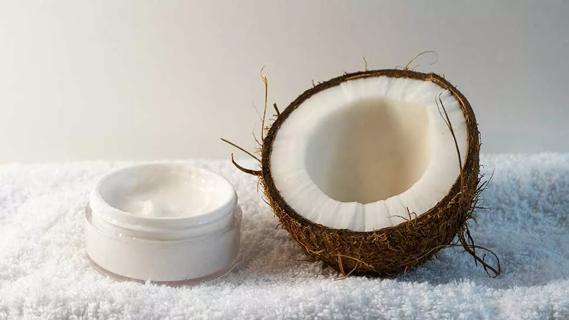
Colloidal oatmeal, petroleum jelly and other around-the-home products can help provide needed relief

From hyperactive immune response to disordered nerve connections, the itch is real
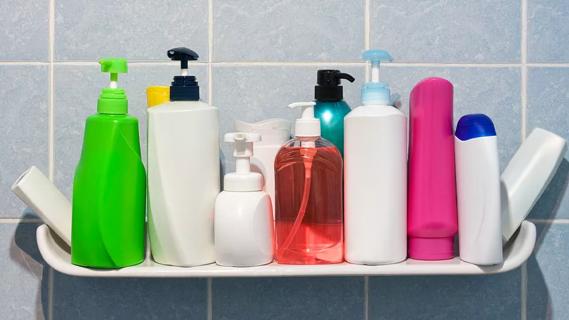
Eczema triggers are different for everyone, but there are some common ways to manage and prevent flare-ups

Hot or cold, your eczema can have flare-ups during multiple times of the year
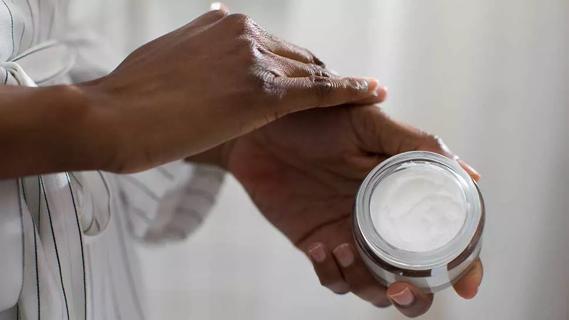
Keep your showers short and lukewarm, and moisturize promptly after with a cream containing ceramides
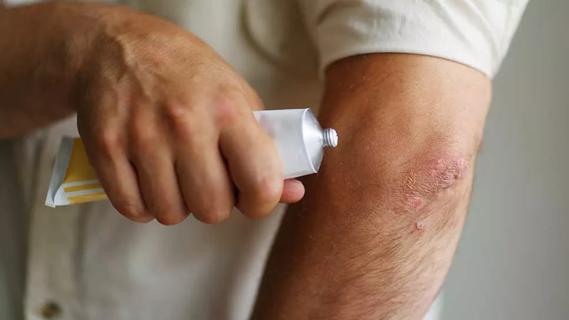
Steroids, self-injections and medications can be game changers
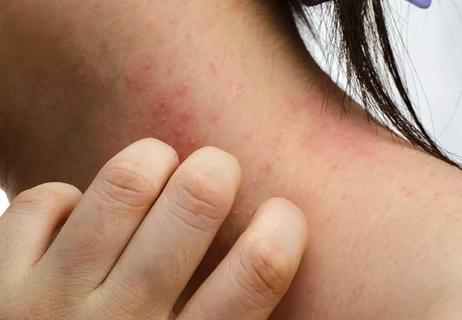
Changing your wardrobe or environment won’t eliminate eczema, but it can help reduce flares
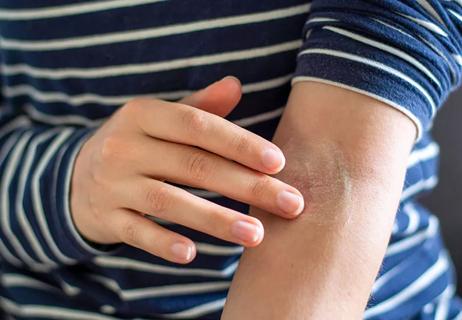
Ingredients to look for and ones to avoid

If you’re feeling short of breath, sleep can be tough — propping yourself up or sleeping on your side may help

If you fear the unknown or find yourself needing reassurance often, you may identify with this attachment style

If you’re looking to boost your gut health, it’s better to get fiber from whole foods